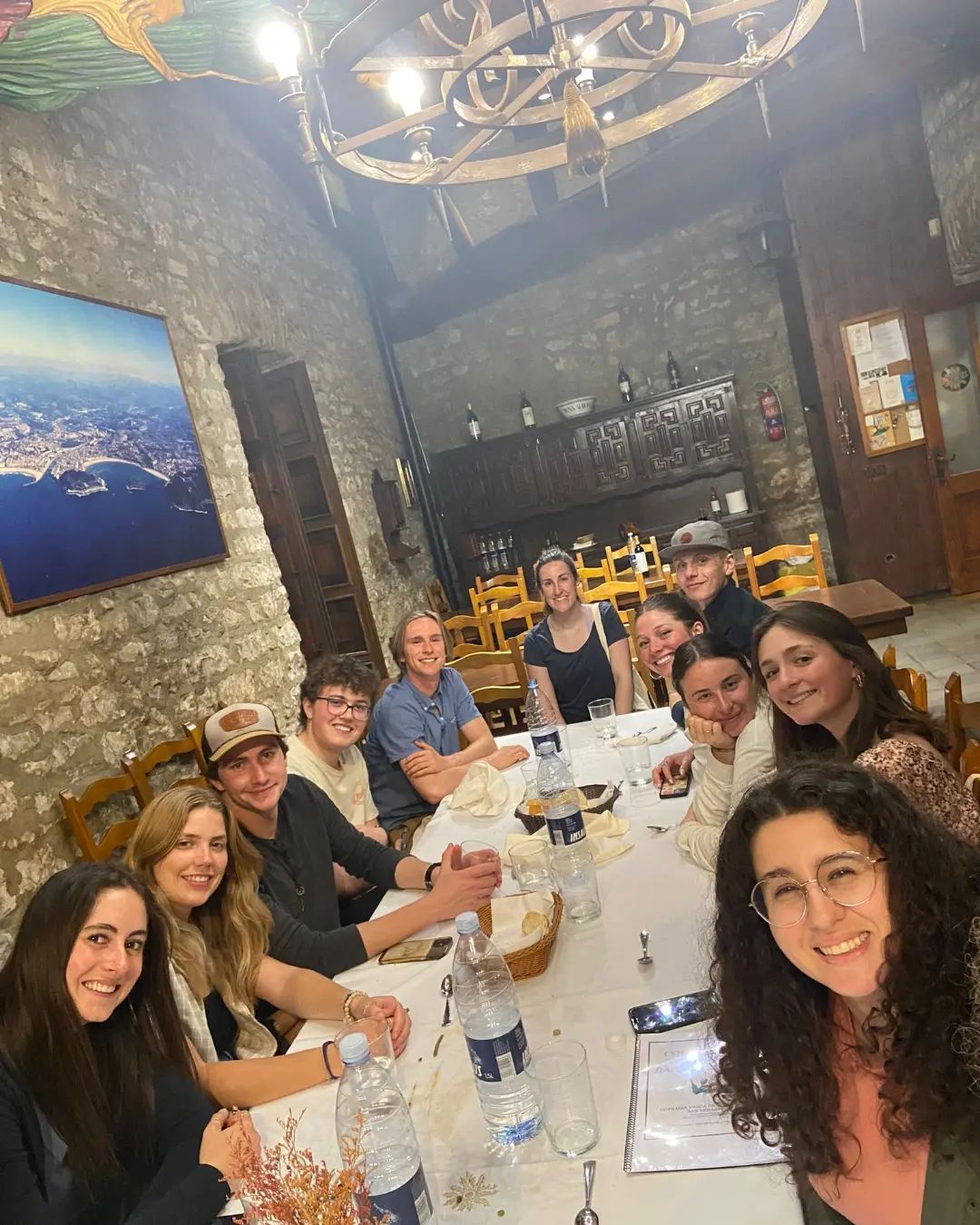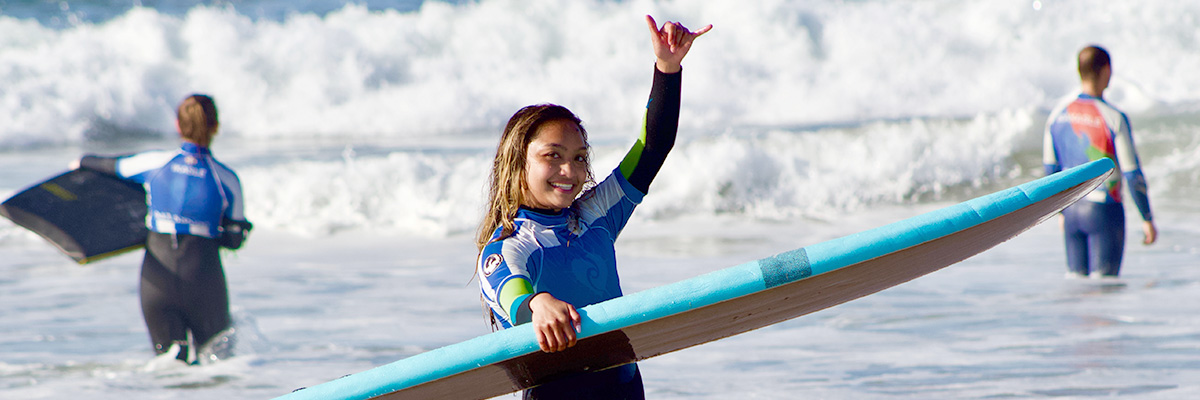Program Highlights for San Sebastián, Spain
Language spoken:
Spanish, Basque
Currency:
Euro (EUR, €)
Climate:
Mediterranean
City type:
Metropolis (Population >500,000)
Program type:
Specialty
Host university:
Universidad del País Vasco
Language of instruction:
English, Spanish, Basque
Terms offered:
Spring, Summer, Fall, Yearlong
Program capacity:
65 students
Credit type:
U.S. semester credit
Summer 2024:
Session 1 or 1&2: March 15
Session 2: April 15
Fall/Yearlong 2024-25:
May 1
Spring 2025:
October 1
Eligibility:
Minimum GPA: 2.5
Scholarships and Financial Aid:
Deadlines vary
- Study Spanish and Basque language and culture while you participate in activities such as hiking, cultural events, and the conversation partner program with local students.
- Live in a stunning location on Spain’s beautiful northern coast, twenty minutes from the border of France—with easy connections to Madrid, Bilbao, and major European cities.
- Surf the Basque Country with locals to see why San Sebastián is known as one of the top destinations for surfing in Europe.
- Benefit from San Sebastián’s well-known cuisine and beautiful beaches.
- Join excursions in Spain and the French Basque Country to prehistoric caves, mountains, and traditional fishing villages.
- Immerse yourself in the local culture through cooking classes, learning Basque folk dancing, wearing a crazy costume in a carnival parade, and learning to play the txalaparta.
- Sign up for the optional Madrid Tour/Field Study and earn credit while exploring one of Europe’s most exciting capital cities.
- The USAC Resident Director and staff are present on-site full-time to welcome and support you during your term abroad.
Why Study in San Sebastián?

 Live and study in San Sebastián to open an academic window on the Spanish and Basque people, introducing you to the rich diversity of Spain and offering a truly multicultural experience. San Sebastián has the highest level of bilingualism of any of the area’s cities, since all its inhabitants speak Spanish, and one third speak Basque as well.
Live and study in San Sebastián to open an academic window on the Spanish and Basque people, introducing you to the rich diversity of Spain and offering a truly multicultural experience. San Sebastián has the highest level of bilingualism of any of the area’s cities, since all its inhabitants speak Spanish, and one third speak Basque as well.
San Sebastián is nestled twelve miles from the French border at the foot of the deep green Pyrenees Mountains in the province of Gipuzkoa. It faces a gorgeous bay bordered by beaches and a port. An ancient city largely destroyed in the nineteenth century, most of San Sebastián is quite modern, while the narrow streets of the Old Quarter preserve the flavor of days gone by. Voted European Cultural Capital, San Sebastián is an inviting, walkable, lovely coastal city with rich culture, cuisine, and outdoor activities available.
Come for a semester or year to study Spanish or Basque, plus history, literature, culture, art, and psychology. An intensive language approach allows you to complete up to two years of university language coursework in only one semester. What you learn in the classroom extends outside it in formal and informal cultural integration activities, such as elective courses shared by local students, field trips to both the French and Spanish Basque Country, and visits to cultural events and village festivals.
San Sebastián is a perfect location for exploring Spain, the Basque Country, and southwestern France. The city itself is easy to get around—many USAC students ride bikes or walk to classes—and has several beaches to enjoy. San Sebastián’s spectacular natural setting and its culinary delights have made it a mecca for tourists looking for a beautiful vacation spot paired with wonderful food. You’ll find more Michelin-starred restaurants in San Sebastián than in any other city in Spain, but you don’t have to have a three-star meal in order to eat well. You can also enjoy the excellent and colorful pintxos (tapas) in many of the bars in the old quarter.
Surfing the Basque Country has become a popular slogan that you will see illuminated throughout the city. San Sebastián has always been revered for its soft, picturesque beaches, but over the past few decades, it has transcended into a hub for surfers all throughout Europe and the world. Add the 1-credit Surfing course and enjoy sharing the Bay of Biscay’s surf with other locals and learn a sport that has become significant in Basque culture.

